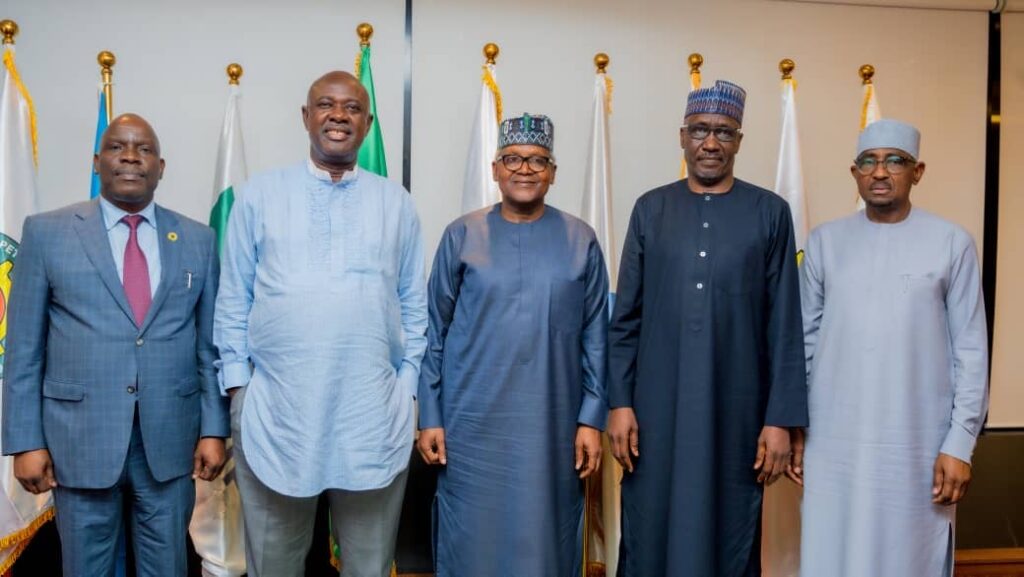THE Federal Government has waded into the open spat between the Nigerian Midstream and Downstream Petroleum Authority (NMDPRA) and the newly established Dangote Refinery.
Consequently, Minister of State for Petroleum Resources (Oil), Heineken Lokpobiri, has convened a crucial meeting with key stakeholders, including businessman Aliko Dangote and NMDPRA leadership, to address ongoing disputes affecting the take-off of Dangote Refinery.
The meeting aimed to foster collaboration and resolve issues hindering the refinery’s operations, which many hoped would alleviate Nigeria’s dependence on imported petroleum products.
Present at the meeting were president of Dangote Group, Aliko Dangote; chief executive of NMDPRA, Farouk Ahmed; chief executive of the Nigerian Upstream Petroleum Regulatory Commission (NUPRC), Gbenga Komolafe, and group chief executive officer of the Nigerian National Petroleum Company Limited (NNPC), Mele Kyari, a statement signed by the minister’s special adviser on Media and Communication, Nneamaka Okafor, stated.
The stakeholders expressed their gratitude to the minister for his exemplary leadership and timely intervention in facilitating the crucial dialogue. The meeting focused on finding a sustainable and lasting solution to the current impasse affecting the Dangote Refinery, with all parties demonstrating a commitment to collaborative and proactive problem-solving.
The minister emphasised the importance of cooperation and synergy among all stakeholders to ensure the success and optimal performance of the Oil and Gas sector, which is pivotal for Nigeria’s economic growth and energy security.
This meeting marked a significant step towards resolving the challenges and underscored the minister’s dedication to fostering a conducive environment for Nigeria’s oil and gas sector.
The dispute between Dangote Refinery and the NMDPRA centred around allegations of substandard fuel production by Dangote Refinery as alleged by the NMDPRA boss.
NMDPRA CEO Farouk Ahmed claimed that Dangote’s diesel has a higher sulphur content (650-1,200 ppm) compared to imported diesel, making it inferior. However, Dangote refuted the claims, stating that their lab analysis showed the diesel has only 87.6 ppm sulphur.
Dangote also said the NMDPRA approved their refinery lab in March 2024. The NMDPRA has embedded 15 engineers in the refinery to monitor operations.
The House of Representatives has called on both parties to resolve their differences amicably to avoid discouraging investors. The NMDPRA was awaiting a fresh report from Dangote Refinery to confirm the sulphur levels, which is expected on Monday.






